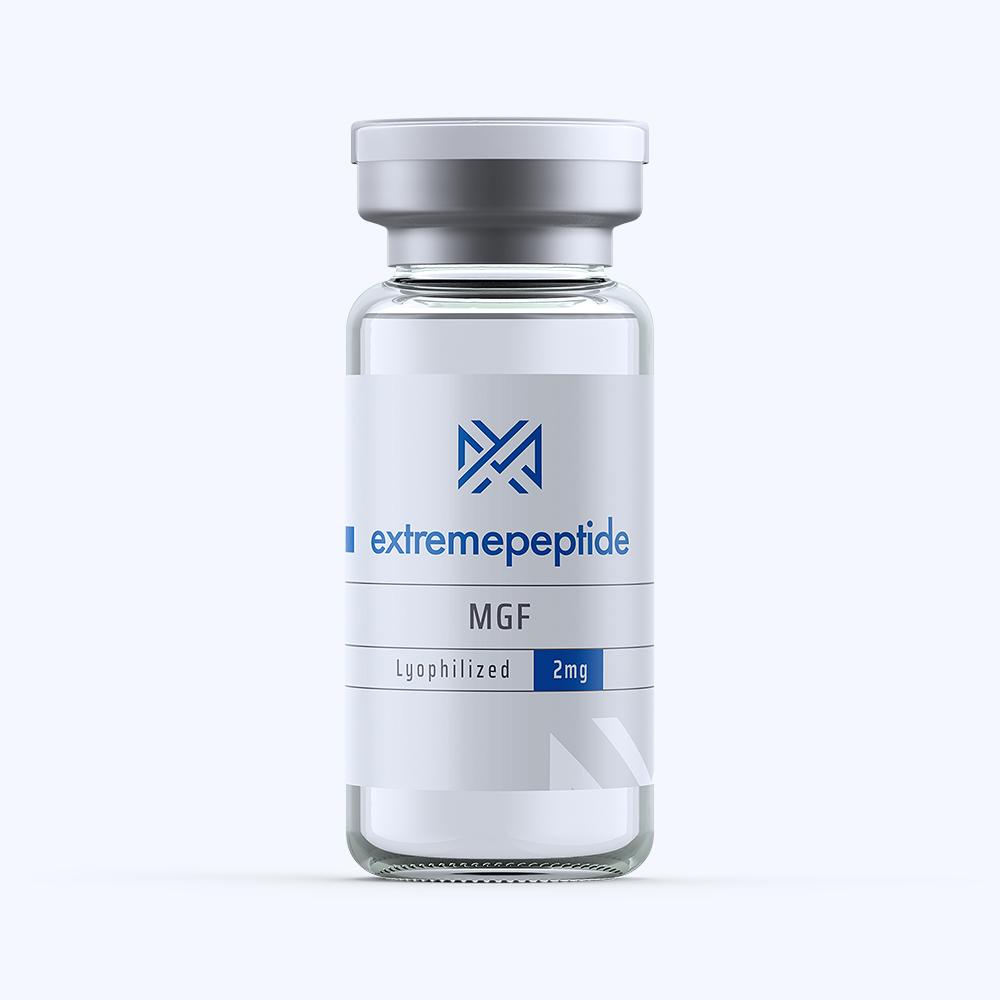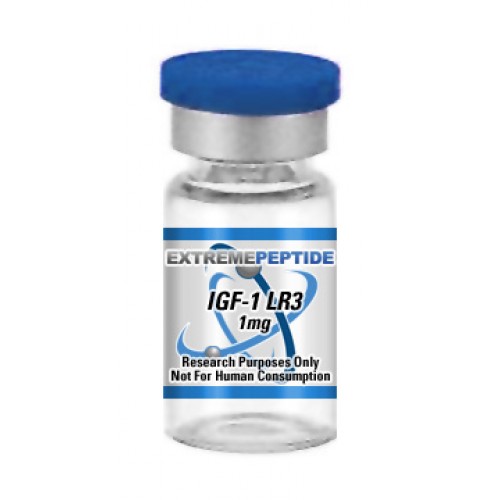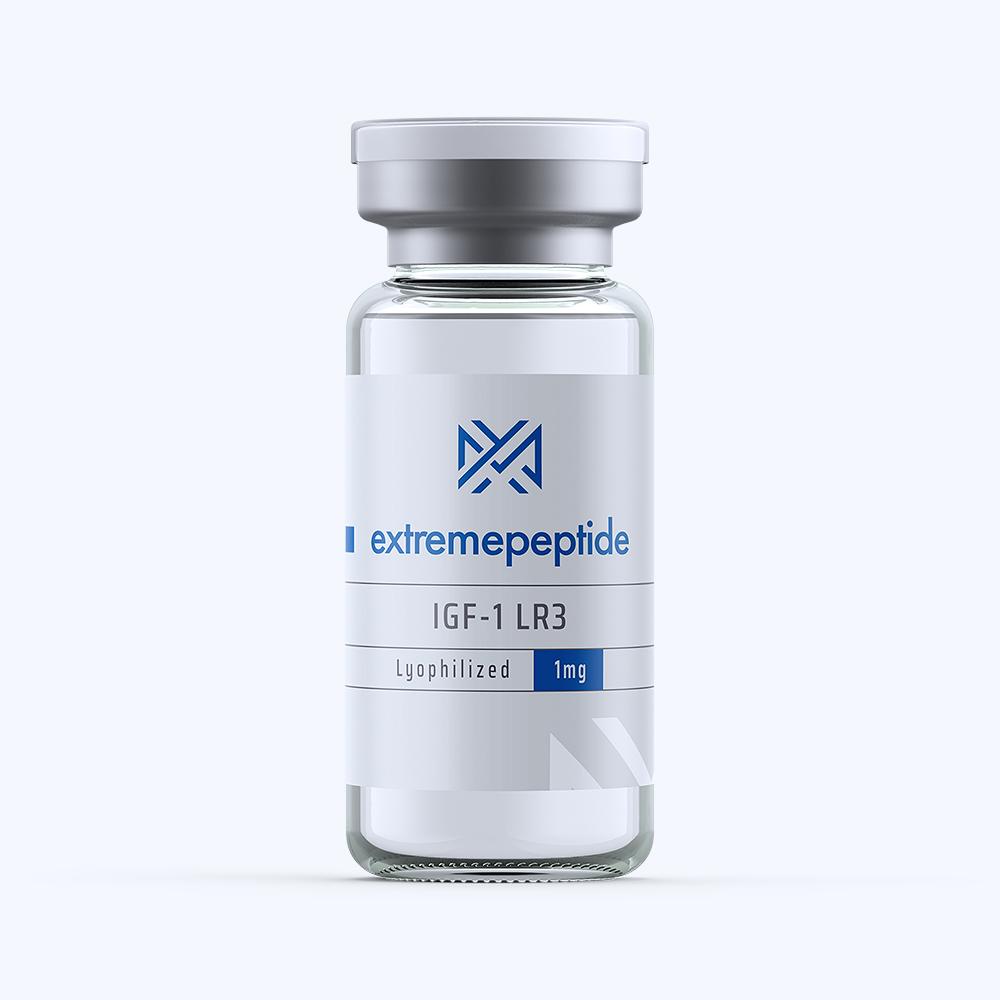MGF (Mechano Growth Factor) is a liver-secreted peptide that can sometimes be referred to as IGF-1Ec or IGF-1Eb. It has a molecular formula is C121H200N42O39, and it has a molecular weight of 2888.16.
MGF (Mechano Growth Factor) and the Functionality of Cellular Units
According to scientific study that has been based on animal test subjects, it has been determined that MGF (Mechano Growth Factor)’s overall operational mechanics enable it to do the following trio of processes:
- Provide an inhibition of terminal differentiation – It has been shown that MGF (Mechano Growth Factor) slows down the last stage of the cellular differentiation process, which is the part of the cellular life cycle in which the cell loses its sense of overall functionality. Because of this inhibition process, the peptide can enable the cellular unit to experience a longer interval of performance.
- Provide an enhanced level of myoblast proliferation – It has been determined that the peptide can increase the instance of the creation and building of muscular and skeletal tissue. This particular trait can be directly linked to its ability to provide a boost in the secretions that have been shown to play an instrumental part in muscle and tissue growth and repair.
Further scientific study that has been based on animal test subjects has determined that the expression of MGF (Mechano Growth Factor) occurs in a non-uniform manner, as it is expressed in different tissues or in response to various differing stimuli. It has also been shown to display preferences in regards to the signal transduction pathways that they activate.
What this Functionality Means
Because of the way in which MGF (Mechano Growth Factor) has been shown to operate, scientific study that has been based on animal test subjects has been able to link a host of theorized benefits to the peptide. Several of these particular benefits can be directly associated with the way in which MGF (Mechano Growth Factor) is able to extend the half-life of secretions as they relate to muscle and tissue cells as well as its ability to block terminal differentiation.

It has been thought that MGF (Mechano Growth Factor)’s ability to provide a more efficient means of skeletal tissue growth and repair can translate to an elevated process for bone minerals to be produced internally. This conceptualized boosted process would enable the bones within an animal test subject to become denser on a quicker basis. This boost in density would then translate to bones that are sturdier and less vulnerable to breaks and fractures.
Another benefit that has been hypothetically associated with MGF (Mechano Growth Factor) is in relation to the treatment of an ischemic injury. Because of the way in which it can choose the signal transduction pathways that it can activate, studies have been able to hypothesize that this ability could enable it to aid in providing an extra measure of stabilization within an animal test subject’s body in the aftermath of an ischemic episode. These particular types of episodes include stroke, cardiac arrest due to a heart attack, angina pectoris, or a lack of oxygen delivered to an effected area in the wake of a traumatic injury.




